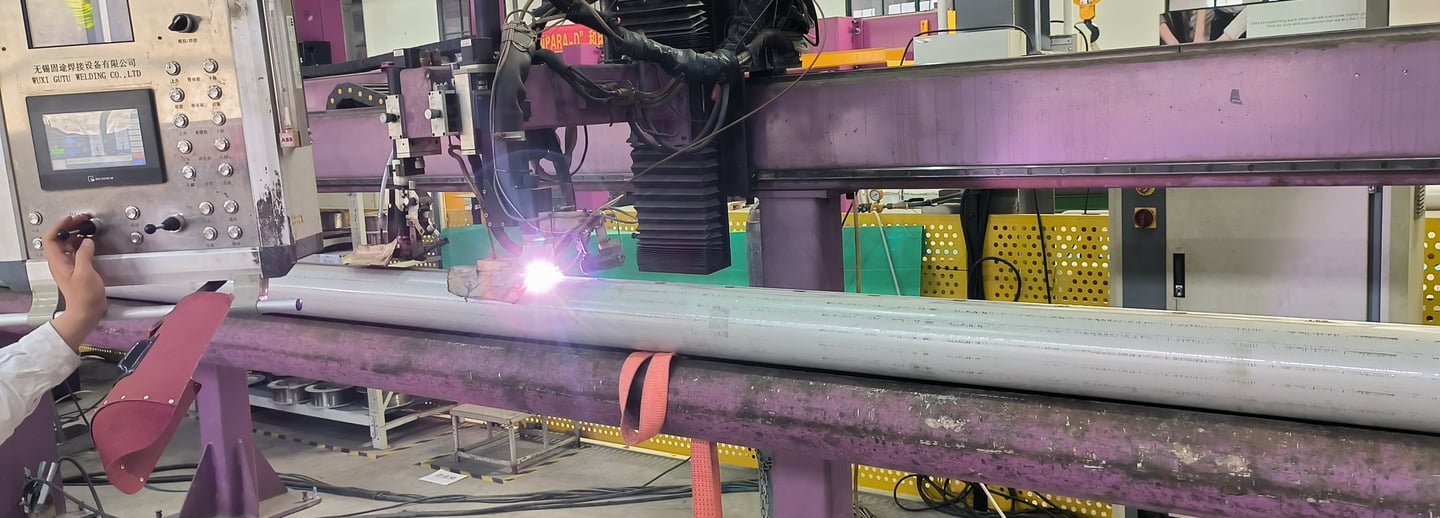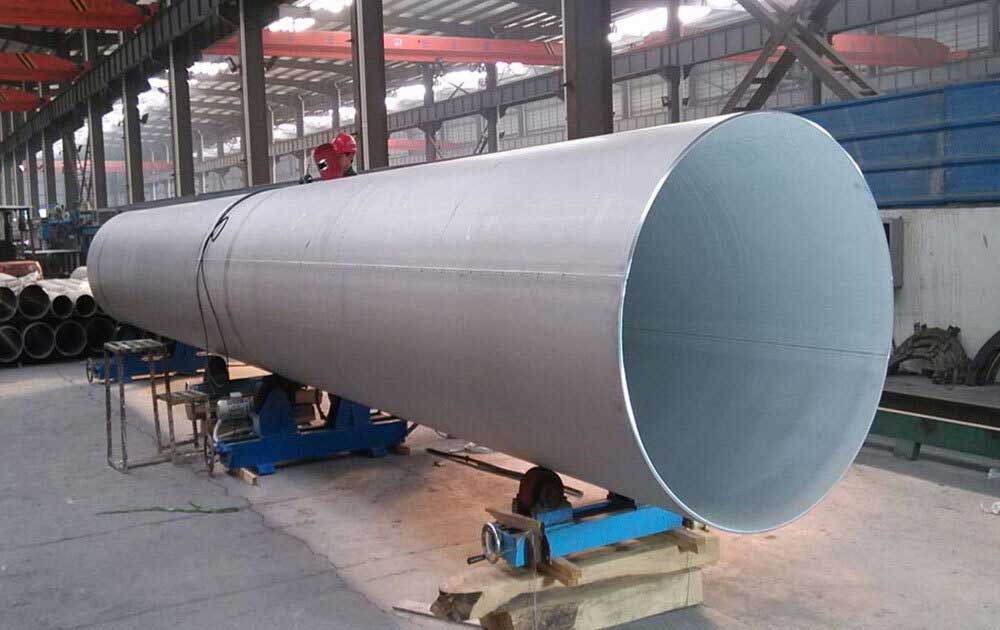Why It's So Important to Select Quality Corrosion-Resistant Alloys for Welded Pipes
Overview: In demanding industries such as petrochemical, oil & gas, desalination, and chemical processing, the integrity of piping systems is paramount. These systems are often exposed to harsh environments and corrosive substances, making the selection of appropriate materials crucial for ensuring operational safety, longevity, and cost-effectiveness. This article will delve into the critical importance of selecting high-quality, corrosion-resistant alloys for welded pipes, highlighting the advantages of welded pipes, the specific alloys frequently employed, and the significance of partnering with reputable manufacturers like those found in China, particularly those specializing in custom alloys. We will emphasize the importance of quality assurance and the role of sourcing specialists in delivering reliable solutions to clients worldwide. This is especially relevant to businesses looking for PMI Piping solutions.
INDUSTRY INSIGHTKNOW-HOW
Table of Contents:
1. Introduction: The Critical Role of Corrosion-Resistant Welded Pipes
2. Advantages of Welded Pipes: A Cost-Effective and Reliable Solution
3. Corrosion-Resistant Alloy Selection: Ensuring Longevity and Performance
3.1 Stainless Steel Welded Pipes
3.2 Duplex Superduplex Welded Pipes
3.3 Nickel Alloy Welded Pipes
4. The Importance of Quality Assurance in Welded Pipe Manufacturing
5. The Role of a Reputable China Corrosion Resistant Alloys Welded Piping Manufacturer and Exporter-PMI Piping
6. Custom Alloys Welded Pipe: Tailoring Solutions to Specific Needs
7. The Significance of Sourcing Specialists like PMI Piping
8. Conclusion: Investing in Quality for Long-Term Success
9. Contact Information: Reaching PMI Piping
Contents
1. Introduction: The Critical Role of Corrosion-Resistant Welded Pipes
Piping systems form the circulatory system of numerous industrial processes, transporting critical fluids and gases. The failure of these systems due to corrosion can lead to catastrophic consequences, including equipment damage, environmental pollution, production downtime, and, most importantly, safety hazards. Therefore, the selection of appropriate materials, particularly corrosion-resistant alloys for welded pipes, is not merely a technical decision but a crucial aspect of risk management and operational efficiency. In applications involving aggressive chemicals, high temperatures, or harsh marine environments, the use of inferior or unsuitable materials can quickly lead to corrosion-related failures.
2. Advantages of Welded Pipes: A Cost-Effective and Reliable Solution
While seamless pipes were traditionally considered the superior choice for high-pressure applications, advancements in manufacturing techniques and rigorous quality control procedures have significantly improved the reliability of welded pipes. Welded pipes offer several advantages over seamless pipes, including: Cost-effectiveness: Welded pipe manufacturing processes are often more efficient, leading to lower production costs compared to seamless pipe production. This translates into a more competitive price point for the end user. Wider range of sizes and thicknesses: Welded pipes can be manufactured in a broader range of sizes and wall thicknesses than seamless pipes, offering greater flexibility in design and application. Improved availability: Welded pipe production capacity is often higher than seamless pipe production, leading to better availability and shorter lead times.
Comparable performance: With modern welding techniques and stringent quality control, welded pipes can perform just as well as seamless pipes, provided they are used within their specified pressure and temperature tolerances. The theoretical weakness at the seam has been largely mitigated through advancements in welding technology.
The key is to ensure that the welded pipes are manufactured by reputable producers who adhere to international standards and employ robust quality assurance procedures.
3. Corrosion-Resistant Alloy Selection: Ensuring Longevity and Performance
The selection of the appropriate corrosion-resistant alloy is critical for ensuring the longevity and performance of welded piping systems. The specific alloy chosen depends on the operating environment, the type of fluid or gas being transported, the temperature, and the pressure. Common corrosion-resistant alloys used in welded pipe manufacturing include:
3.1 Stainless Steel Welded Pipes
Stainless steel is a widely used corrosion-resistant alloy, offering excellent resistance to a broad range of corrosive environments. Different grades of stainless steel, such as 304, 316, and 317, offer varying levels of corrosion resistance and are selected based on the specific application requirements. Stainless steel welded pipes are commonly used in industries such as food processing, pharmaceuticals, and water treatment.
3.2 Duplex Superduplex Welded Pipes
Duplex superduplex (S31803,S32205,S32750,S32760...) offer superior corrosion resistance compared to austenitic stainless steels like 304 and 316. They also exhibit higher strength, making them ideal for high-pressure and high-temperature applications. Duplex stainless steels offer excellent resistance to chloride stress corrosion cracking, a common problem in marine environments and chemical processing plants. Super duplex stainless steels provide even greater corrosion resistance and are often used in the most demanding applications.
3.3 Nickel Alloy Welded Pipes
Nickel alloys (N04400, N06600, N06625, N06690, N08800, N08810, N0811, N08825...) offer exceptional corrosion resistance in highly aggressive environments, including those containing strong acids, alkalis, and oxidizing agents. Alloys such as Inconel, Hastelloy, and Monel are commonly used for welded pipes in chemical processing, aerospace, and nuclear industries. Nickel alloys are particularly well-suited for applications where stainless steel is not sufficient to withstand the corrosive environment.


4. Regardless of the alloy chosen, rigorous quality assurance is essential throughout the welded pipe manufacturing process. This includes:
Material certification: Ensuring that the raw materials used in the manufacturing process meet the required specifications and have the correct chemical composition. Welding procedure qualification: Validating that the welding procedures used are appropriate for the alloy and the application, and that they produce welds with the required strength and corrosion resistance.
Non-destructive testing (NDT): Employing NDT methods such as radiography, ultrasonic testing, and liquid penetrant testing to detect any defects in the welds.
Hydrostatic testing: Subjecting the welded pipes to high pressure to verify their integrity and leak-tightness.
Corrosion testing: Conducting corrosion tests to assess the resistance of the welded pipes to specific corrosive environments.
Thorough quality assurance procedures ensure that the welded pipes meet the required standards and are fit for their intended purpose.
5. The Role of a Reputable China Corrosion Resistant Alloys Welded Piping Manufacturer and Exporter- PMI Piping
China has emerged as a major global supplier of welded pipes, including those made from corrosion-resistant alloys. Selecting a reputable `China Corrosion Resistant Alloys Welded Piping Manufacturer and Exporter` is crucial for ensuring the quality and reliability of the products. When choosing a supplier, consider the following factors:
Certification and accreditation: Look for manufacturers with certifications such as ISO 9001, indicating that they have a robust quality management system in place.
Experience and expertise: Choose a manufacturer with a proven track record in producing welded pipes from the specific alloy required.
Manufacturing capabilities: Ensure that the manufacturer has the necessary equipment and expertise to produce welded pipes to the required dimensions and specifications.
Quality control procedures: Verify that the manufacturer has comprehensive quality control procedures in place throughout the manufacturing process.
Reputation and references: Check the manufacturer's reputation and obtain references from previous clients.
Partnering with a reliable Chinese manufacturer can provide access to high-quality welded pipes at competitive prices.
6. `Custom Alloys Welded Pipe`: Tailoring Solutions to Specific Needs
In some cases, standard alloy compositions may not be suitable for the specific operating environment. `Custom Alloys Welded Pipe` provides a tailored solution to address unique challenges. These custom alloys are designed to offer enhanced corrosion resistance, strength, or other properties that are not available in standard alloys. Working with a manufacturer that specializes in custom alloys welded pipes allows for the development of a piping system that is perfectly suited to the application requirements. This ensures optimal performance and longevity.
7. The Significance of Sourcing Specialists like PMI Piping
Navigating the global market for corrosion-resistant welded pipes can be complex. Sourcing specialists like `PMI Piping` play a vital role in helping clients identify and procure the right products for their needs. These specialists have extensive knowledge of the market, a network of trusted manufacturers, and expertise in quality assurance. `PMI Piping` can assist clients with:
Material selection: Helping clients choose the appropriate alloy for their specific application.
Supplier identification: Identifying reputable manufacturers who can supply high-quality welded pipes.
Quality control: Ensuring that the welded pipes meet the required standards and specifications.
Logistics and shipping: Managing the logistics of shipping the welded pipes to the client's location.
By working with a sourcing specialist like `PMI Piping`, clients can save time and resources, and ensure that they receive the best possible products and service.
8. Conclusion: Investing in Quality for Long-Term Success
The selection of high-quality, corrosion-resistant alloys for welded pipes is a critical decision that can significantly impact the safety, reliability, and cost-effectiveness of industrial operations. By choosing the right alloy, ensuring rigorous quality assurance, and partnering with reputable manufacturers and sourcing specialists, businesses can minimize the risk of corrosion-related failures and ensure long-term success. Investing in quality upfront translates to lower maintenance costs, reduced downtime, and improved overall performance.
9. Contact Information: Reaching `PMI Piping`
For more information about our range of welded pipes, please visit www.pmipiping.com and contact PMI Piping sales office at sales@pmipiping.com.
We are committed to providing our clients with competitive quality products and services, ensuring the success of their projects.


PMI Piping Welded Pipes Manufacturing


